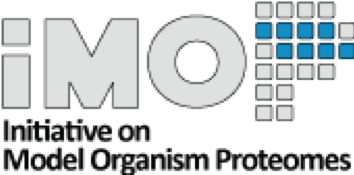|
|
Leadership and Team membersChair:
Fabrice Bertile, Ph.D CNRS/University Strasbourg, France Co-Chairs:
Sabine Matallana-Surget, Ph.D University of Stirling, UK
Susana Cristobal, Ph.D Linköping University, Sweden
Andreas Tholey, Ph.D Kiel University, Germany Jean Armengaud, Ph.D Paris-Saclay University, CEA, France Early career researcher: Tristan Cardon, Ph.D Inserm, University of Lille, France |
Unlocking New Model Organisms: Revolutionizing Health, Environment, and Biodiversity Our overall aim is to promote the emergence of new model organisms. In particular, we consider organisms as models when they are suitable for i) the study of biological mechanisms important to human health and disease, ii) a better understanding of pathogenicity, pathogen reservoirs, and the emergence of resistance, and iii) deciphering the toxic effects of pollutants and exposomes on biological systems in order to define sentinels of our environment, or to be relevant to the One-Health concept. Furthermore, iMOP will allow for the characterization of non-referenced proteins across various models. Initiated in 2010, iMOP is at the forefront of Evolutionary Biology, Medicine, Environmental Proteomics, and Ecotoxicology. Through innovative approaches using comparative proteomics, proteogenomics, and (eco)toxicoproteomics, our initiative fosters collaborations between biologists and multi-omics specialists. By promoting multidisciplinary approaches, we tackle new challenging scientific questions and strive to enhance human health, environmental quality, and biodiversity conservation. Researchers interested in our work are welcome to join us at every time. In particular we would like to motivate also early career researchers to join our team. Current line of work:
Must read iMOP publications: Bertile F, Matallana-Surget S, Tholey A, Cristobal S, Armengaud J (2023). Diversifying the concept of model organisms in the age of –omics. Commun Biol, 6(1): 1062. Tholey A, Taylor NL, Heazlewood JL, Bendixen E (2017). We are not alone: The iMOP initiative and its roles in a Biology and Disease driven Human Proteome Project. J Proteome Res, 16: 4273-4280. Heazlewood JL, Schrimpf SP, Becher D, Riedel K, Tholey A, Bendixen E (2015). Multi-organism proteomes (iMOP): advancing our understanding of human biology. Proteomics, 15: 2885-2894. Initiative membership: If you would like to become a member of HUPO-iMOP, please contact the chair or one of the co-chairs. | Announcements & upcoming eventsiMOP Workshop @ HUPO2024 More to come...
|








